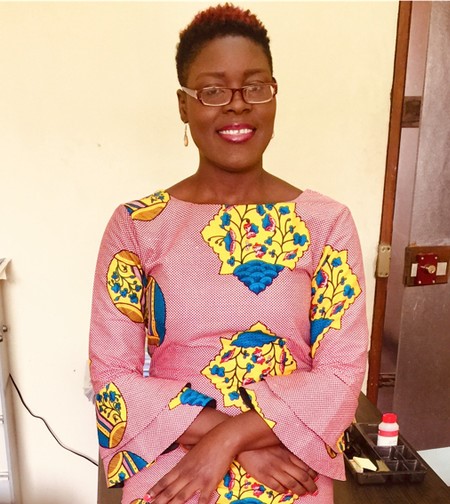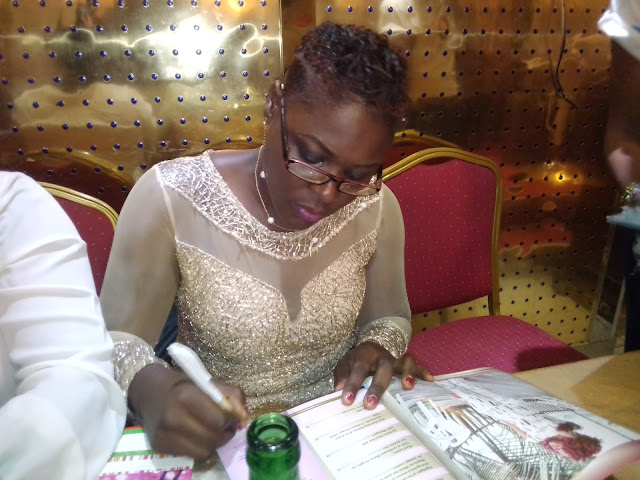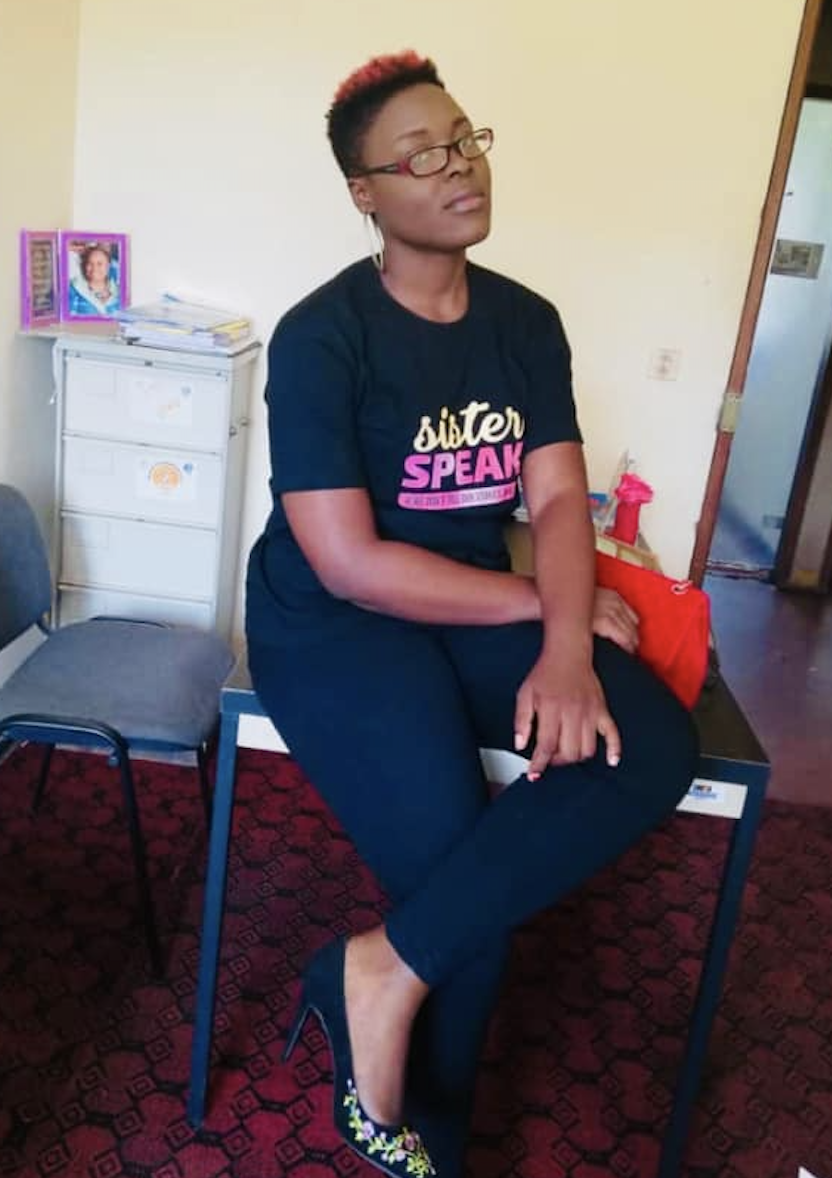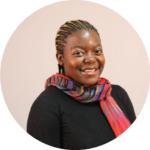Each week, frayintermedia highlights a journalist doing good work on the continent and honours them as our #FaveOfTheWeek. Meet Cameroonian editor and journalist Linda Ngobesing who is passionate about amplifying and celebrating women’s stories.

Q: How did you become a journalist and what are some highlights from your journey?
A: My journey to becoming a journalist is one that I always describe as one that was born from home advantage. My father is a journalist and so my environment influenced me a lot to become a journalist. At the time that my father practised, he was one of the most celebrated and iconic journalists in Cameroon. I was inspired by the fact that he did his job so well and wanted to be just like him when I grew up.
When I was five years old, I had the opportunity to take advantage of the opportunities that were at my disposal, which were going to the radio to talk when young people were invited and participating in television interviews.
That environment and interacting with my father’s journalism colleagues inspired me. In the African context, when someone is the daughter of a journalist, and there’s a journalism club in school, you automatically have to play that role even if you don’t know what you’re doing.
Fortunately, I had some skills when I was younger and so I started practising all of these things a little bit earlier on in life. When I left college, I had to make the decision of what to study in school and it was very easy for me to make that decision.
I decided to study a double major course in journalism, mass communication and women and gender studies. I double-majored because I wanted to tell the underreported stories of women and girls in Cameroon and so that’s how my journey began. After studying journalism, I went to practice in local media organisations.
Later on, I was recruited to the state broadcaster.
Q: Why are women’s narratives important as well as amplifying them?
A: I’m the editor-in-chief of Women on the Move. Women on the Move is a magazine that believes in the intrinsic power of women’s voices. We celebrate women fully. Over the years, women have been clamouring for a lot. They have been clamouring for the right to vote, for their right to make decisions about their own bodies and the right to get voted into decision making. For positions and a seat at the table.

They have been clamouring for the rights of financial autonomy and a lot more. But there has been a lot achieved by women over these years and these achievements are not celebrated enough. The magazine was inspired by the fact that when you look at the media landscape and the stories that are reported about women, it’s always stories that put them in the position where they look beggarly, they look poverty-stricken, they look like we are always asking. Like we’re always begging.
What about the stories that celebrate the achievements of women? The aim of Women on The Move was to change the narrative. Let’s tell the stories of the women out there breaking glass ceilings, trailing the blues, blazing a new path and developing new solutions. These women are out there boosting economies and changing the game.
However, these stories are not told, they are underreported. That’s the aim of Women on The Move. I decided to take my pen and my pain and went out there to get women to tell their stories because who else can tell stories better than the women who are both experiencing and achieving these things.
So I went to the streets and I scouted for these women and got them to tell their stories. I was amazed to listen to some of the achievements of these women and I was delighted to start telling the stories.
Q: Despite the challenges, why do you stay in the profession?

A: It’s actually the challenges that keep me going, they fire me up and keep me burning. Challenges make me want to go out there and do something. So, it’s the challenges that I find on the field that keep me going. When there is no stumbling block, what do you then have to turn into a stepping stone?
I need something that I’m going to stumble on to be able to overcome to have a victory. So I’m always excited when I get challenges, and that’s what keeps me going. I am determined to tell stories. I’m a storyteller. I’m determined to tell untold stories. It keeps me going. I’m passionate about it.
I want every woman out there to find their voice and until that happens, I will not stop. Actually, I’m inspired by the challenges found in the landscape that I have to cover. I’m inspired by the stumbling blocks that I have to overcome. That’s what inspires me. That’s what keeps me going. So for me, I see challenges as an inspiration to continue practising journalism.
Q: What stories should African journalists be telling more?
A: African journalists have a lot of work to do. I think that in our strive for development, journalists should come first. Developing journalism should be top on our agenda. African journalists should be able to tell stories that affect people, stories that touch the lives of people directly.
But also, we should be able to give the real image of Africa, not the Africa that is shown in Western media. Over the years, Africa has been painted as an impoverished land and a place where people are dying of hunger and poverty. What about the beautiful stories that come out of Africa? What about the stories that celebrate Africa? What about the stories that celebrate beautiful cultures and the continent’s amazing people who are doing amazing things.
African journalists should be able to tell these stories not only the stories of war in Sudan. It’s true that all of these stories are important, but also the way that these stories are told matters. We are the ones that experience these things and we are in a better position to tell the stories.
We should not be influenced by the Western media to tell stories in the way that the West tells them, because these things destabilise our economies. I really hope that African journalists can start telling stories that inspire people to want to be African.
If we don’t tell our stories correctly, who will?

